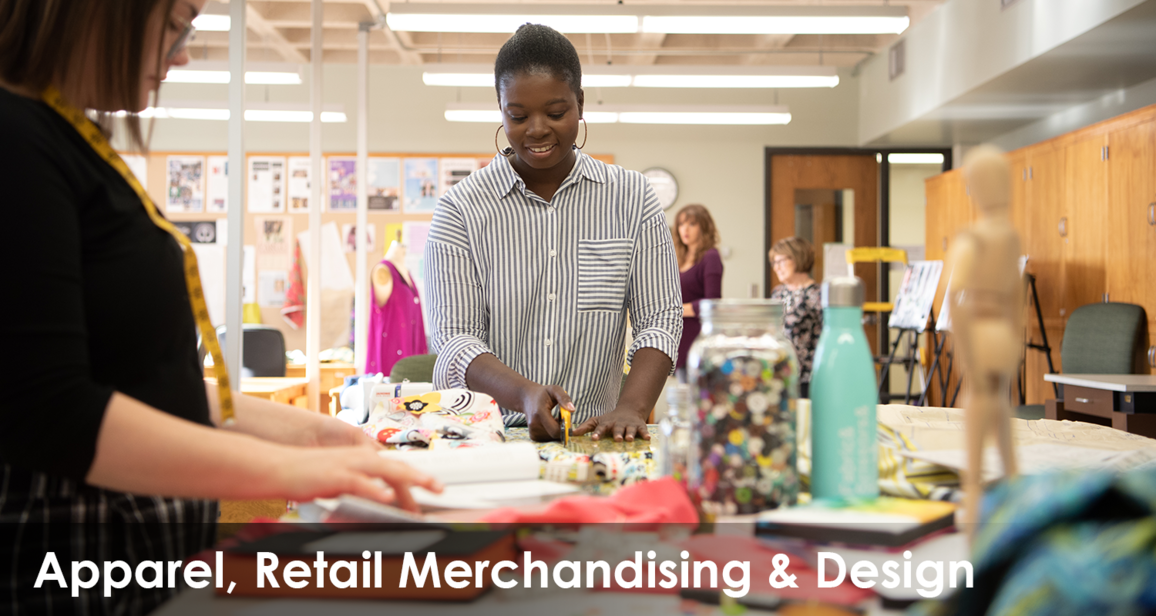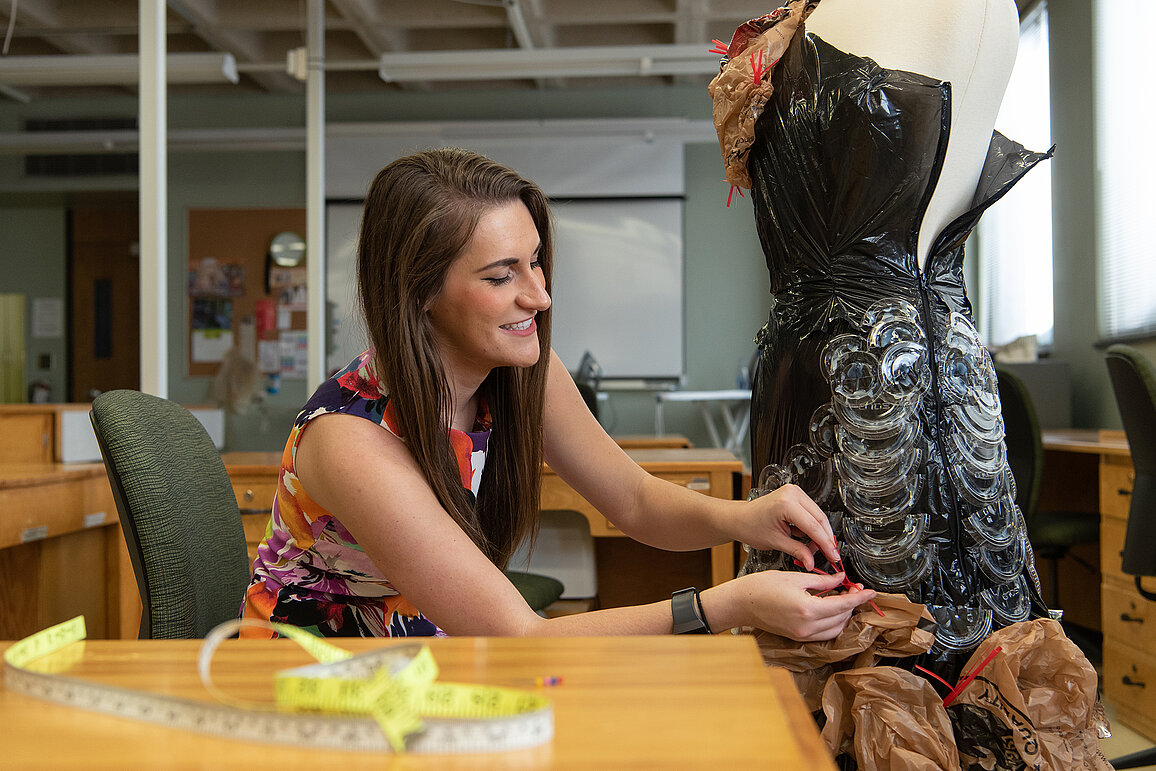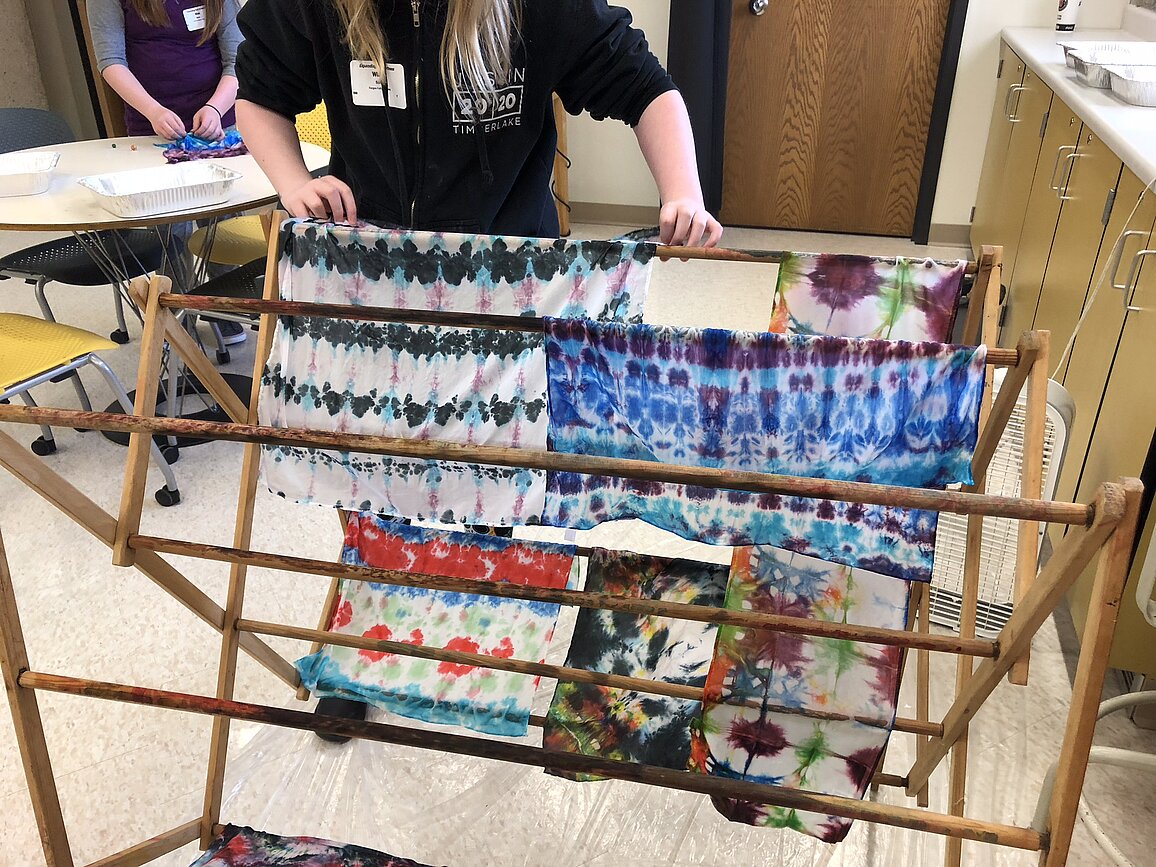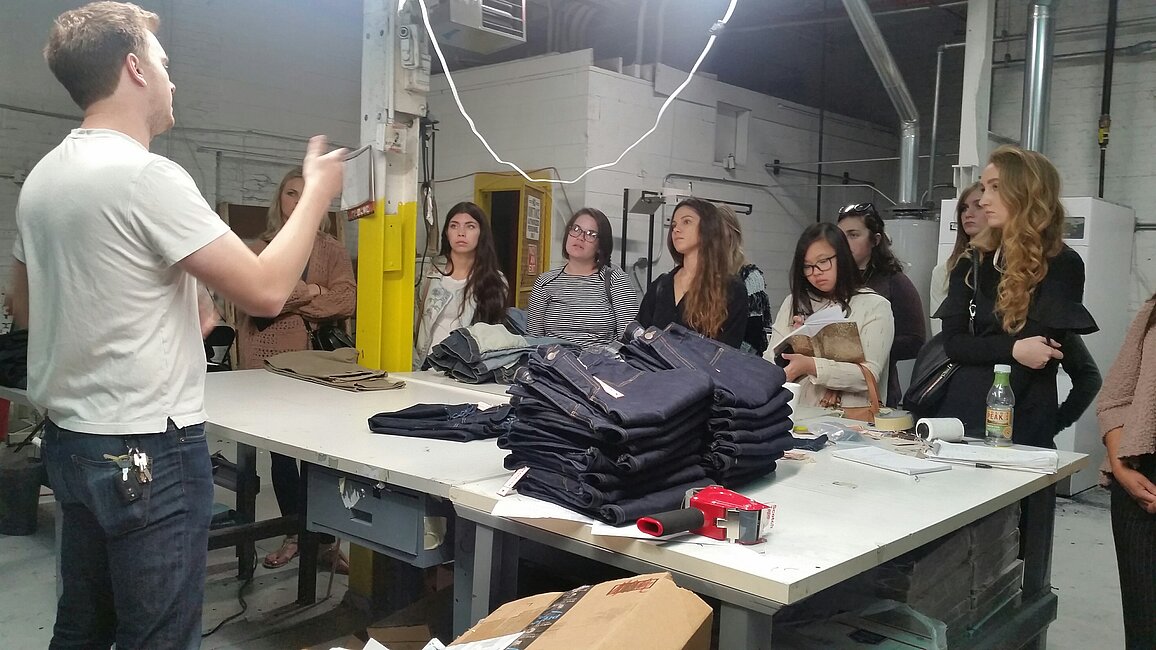
Frequently Asked Questions
Q: What is a typical class size in your program?
A: Generally, classes in Apparel, Retail Merchandising and Design average 20 to 40 students. Laboratory classes generally have 15 to 20 students per class. Classes that are open to all students on campus (courses accepted for general education credit) have higher enrollments.
Q: What kinds of "hands on", experiential learning is available?
A: There are many opportunities for students to gain hands-on experiences while earning a degree in ADHM. All students are required to complete a Field Experience as part of their degree. In addition, the student organization, the Fashion, Apparel, and Business Organization (FABO) provides many opportunities to "learn by doing". One example is the spring fashion show produced by the FABO group.
Q: Are there online courses available?
A: Yes, we offer some classes on-line to accommodate student needs.
Q: Do I need any special equipment or computer hardware or software for this program?
A: Students entering their first year of study are required to have their own laptop computer that meet or exceeds required minimum specifications.
Review computer specification and technology resources ⇒

Q: How is the Fashion Institute of Technology (F.I.T.) in New York affiliated with the ARMD program? What might that look like if I pursue that? What is necessary to be considered?
A: The Fashion Institute of Technology (FIT), a premier fashion institution in NYC offers a Visiting Student Program to students from other universities around the country and world. The ARMD program at NDSU is one such school allowed to offer this option to our students. There are five majors available to students participating in the FIT Visiting Student Program. The most popular with our students is the fashion design and retail merchandising programs.
Professional enrichment is possible through departmental affiliation with the Fashion Institute of Technology (FIT) in New York City, or various Study Abroad programs. NDSU students who attend these institutions for a semester or a year gain valuable experience in fashion or retail merchandising. Interested students should prepare to do this experience during their junior and/or senior year. A student in good standing at NDSU can apply for admission to the one-year Visiting Student Program at FIT, which provides students with an Associate degree from FIT and a Bachelor of Science from NDSU. It is important to work closely with your Academic Advisor to ensure that you meet the graduation requirements of both universities.
Q: How are the Apparel Studies and Retail Merchandising options different? When do I need to decide which option I want to pursue? What are the career paths for each option? Can I opt for a Business minor with the Apparel Studies option? What other minors do students selecting this option pursue?
A: The option in retail merchandising prepares students for a retail merchandising business career. The Business minor is a requirement for those doing the Retail Merchandising option. The apparel studies option prepares students for careers in other areas of the apparel and textiles industry, other than retail merchandising. This option focuses on development, design, and marketing of materials and products within the apparel and textile marketplace, rather than to the ultimate consumer. Additionally, students may select a minor to enhance their learning as it specially relates to a field of interest such as theater design, communications, journalism, and museum curator work. It is possible to earn a minor in business with either option in the program. You can choose one option at the beginning of the program and change to the other option at any time.

Q: Where do students go for internships? Are they paid?
A: Students complete their internships in a variety of locations - many stay in the Fargo/ Moorhead area, some go to Minneapolis, Chicago, New York City, or Los Angeles. Retail stores are often the internship sites; however, students have opportunities at corporate offices and at fashion companies in NY or LA. Most internships are paid, but they tend to be unpaid in the fashion centers such as New York and LA.
Q: Are students placed into an internship or must they find them on their own?
A: Students find their own internship site, but opportunities are made available through faculty contacts. These are shared with students as possibilities during their junior year before the summer internship.
Q: What kinds of careers does this major prepare me for?
A: This major prepares you for a variety of careers in the apparel and interior merchandising industries. Possible career paths include store manager, merchandise analyst, visual merchandise manager, product developer, buyer, business analyst, designer, showroom sales representative, and a marketing manager.
Q: What are the placement rates for graduates of the program? Starting salaries?
A: A typical starting salary range is $35,000 - $50,000. Placement rates are nearly 100% when graduates are flexible about location.
Q: Is this the best path of study to become a buyer?
A: The retail merchandising option is the very best degree for a career as a retail buyer.

Q: What career networking opportunities might be available during my four years of study?
A: Networking opportunities are provided to students in the ARMD program through 1) fashion industry professionals coming into classrooms to speak; 2) summer internships for college credit in professional work environments; 3) study tours focusing on the fashion industry in major cities in the USA and internationally; 4) activities and programs sponsored by the ARMD student group, the Fashion Apparel and Business Organization (FABO).
Q: Is the retail option realistic if I know I want to stay in rural ND?
A: This depends on what the student wants to pursue as a career in a rural area. If the student wants to open his/her own retail or apparel related business, yes, this will provide a great background for this employment. On-line businesses can be operated from rural locations as well
Q: Do I have to know how to sew to be successful in this option?
A: No, one does not need to know how to sew to be in this major. However, if a student wants to work in product design and development, a sewing background is necessary.
Q: What student organizations are associated with this major? How do I get involved?
A: The Fashion Apparel and Business Organization (FABO) brings in speakers and organizes field trips and other activities to provide interaction with professionals. Other organizations in the college and University provide further opportunities for leadership development and contact with professionals.

Learn how to succeed in a dynamic industry!

Apparel, Retail Merchandising, and Design Program Coordinator
Jaeha Lee
E. Morrow Lebedeff Hall 308D
Fargo, ND 58108-6050
Phone: 701-231-8220
Fax: 701-231-5273
Email: jaeha.lee@ndsu.edu









